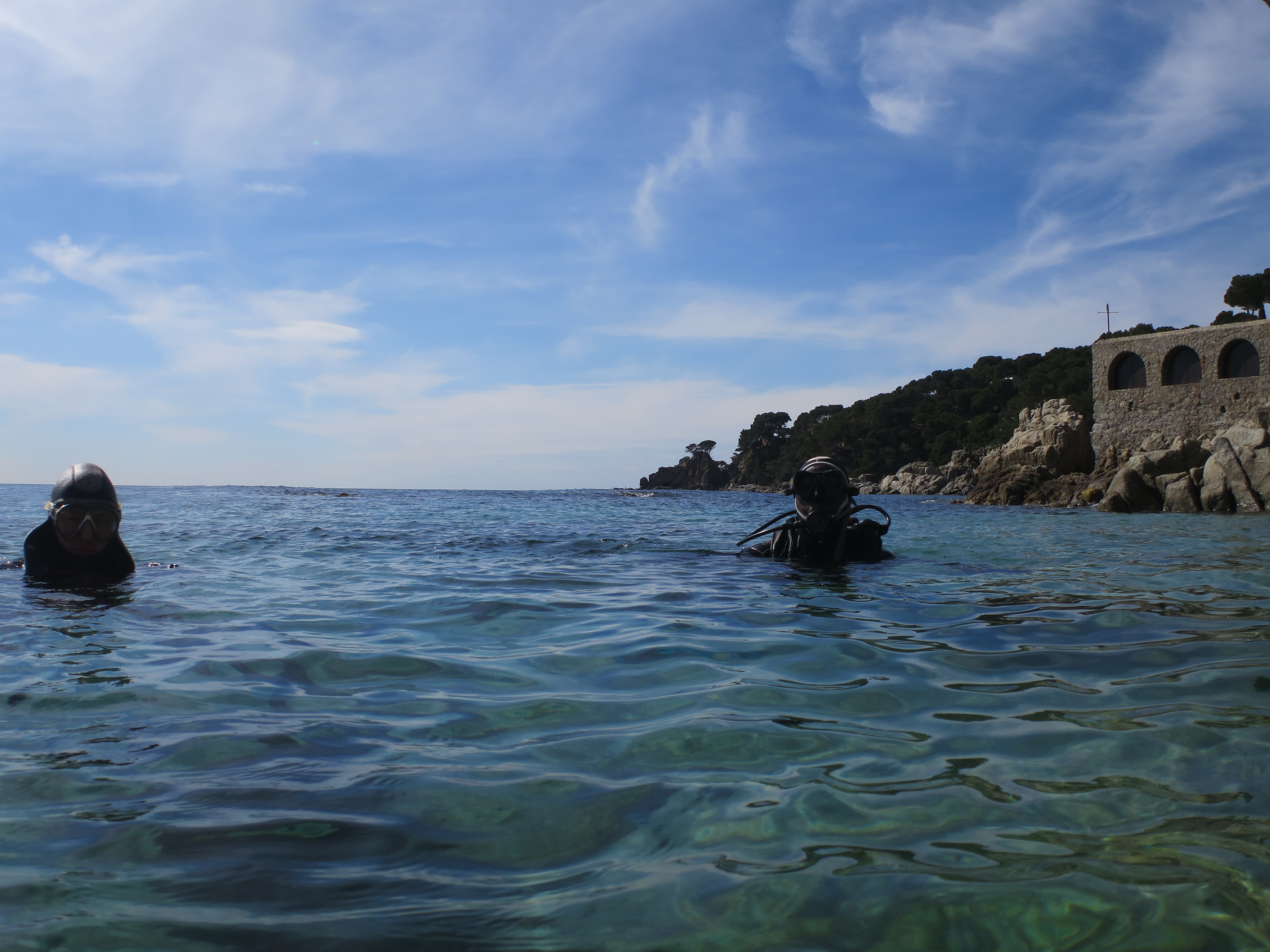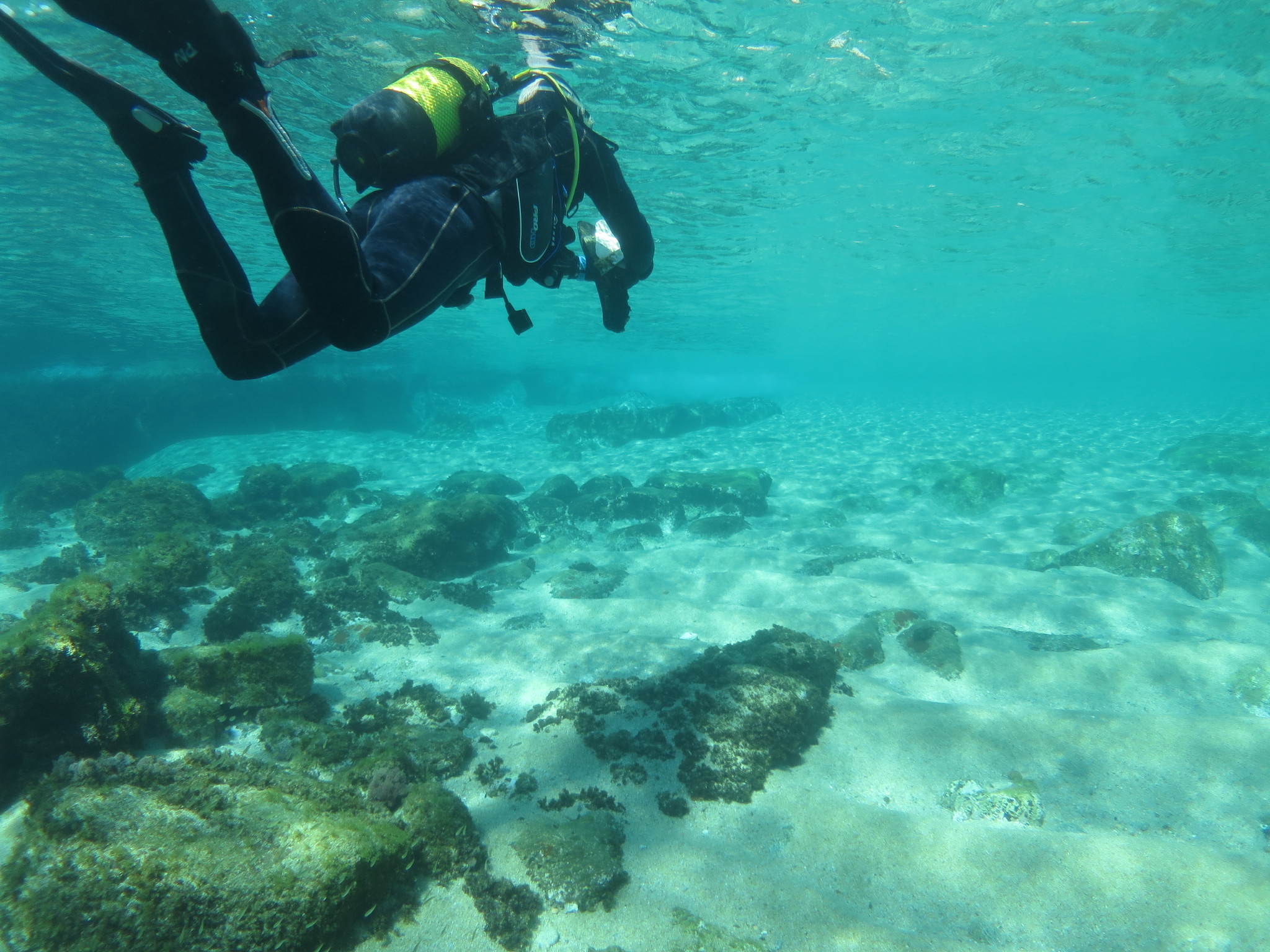UK Schools Find the Costa Brava Very Fishy
 While most people were putting their feet up over the Easter holidays, myself and a group of teachers from Wellington College, Ratcliffe College, Rye St. Antony, BEDES, Headington College, TASIS, Warden Park and Bradfield College headed to Spain to explore the depths of Costa Brava. The trip was organised by Oyster Diving, the UK based PADI 5 Star scuba diving and travel centre that specialises in courses and holidays for schools and colleges.
While most people were putting their feet up over the Easter holidays, myself and a group of teachers from Wellington College, Ratcliffe College, Rye St. Antony, BEDES, Headington College, TASIS, Warden Park and Bradfield College headed to Spain to explore the depths of Costa Brava. The trip was organised by Oyster Diving, the UK based PADI 5 Star scuba diving and travel centre that specialises in courses and holidays for schools and colleges.
Funded by the Costa Brava Tourist Board, we spent 4 days being shown the delights of Spain’s premier underwater locations, as well as many fascinating land-based activities.
With a mixture of new and experienced divers we began our journey with a night’s stay in Hotel Cala Joncols, hidden at the Northern end of the Costa Brava, close to the French boarder.
Hotel Cala Joncols is a relaxed retreat located at the tip of a national park, 20 minutes from the nearest village. Run by Michael and Alexis, this idyllic resort is small and family-owned and provides a genuine Spanish cultural experience. Michael and Alexis couldn’t do more to make your stay more personal and enjoyable. From the décor that compliments the landscape of the vines, pine trees and olive trees, to the amazing food prepared by the resident chef, this is a taste of true Spain.
On our arrival we were greeted with a tour of the estate and endless amounts of Spanish tapas that included fresh fish, shellfish, local meats and paella. The resort is becoming famous amongst wine connoisseurs for aging wines from the area 27m under the sea, creating a unique taste.
The following morning, we met Jan, the owner of the dive centre attached to the hotel. Jan has been diving here for 16 years, so imparted much of his local knowledge upon us. He and his team took great care of us ensuring that everyone had kit that fitted perfectly.
After setting up our kit, we boarded the boat from the beach and 10 minutes later we were entered the clear blue Mediterranean waters close to a small rocky outcrop. Underwater there was plenty to see including Octopus, Wrasse and Groupers. The typography was stunning with ledges and nooks and crannies that many species of marine life call home.
The more experienced divers, who have travelled to many exotic places in the past, were pleasantly surprised by the variety and quantity of the local marine life, often not associated with diving in other parts of the Mediterranean.
 Off the beach there also provides diving opportunities and offers a great place for students to complete their dive courses in the confines of a large, protected bay.
Off the beach there also provides diving opportunities and offers a great place for students to complete their dive courses in the confines of a large, protected bay.
After the dive we headed by mini bus, via a quick tour to the Salvador Dale museum, to the next destination, Calella de Palafrugell, approximately 1 hour from Girona. Calella is a small fishing village that is picture-postcard-perfect. The area boasts small, white fronted houses nestled around a golden sandy beach, the Pyrenees mountains providing the stunning backdrop. Calella is not to be confused with the Calella close to Barcelona that I visited on a ‘young persons holiday’ in 1987.
The next morning, we were greeted by the friendly and experienced instructors Angel and Melissa from Poseidon, the local dive centre. This charming local PADI centre is located right on the beach. You can board their dive boat straight off the beach to explore the local wrecks and reefs, or simply do what we did and stroll straight off the sand, which was greeted by some bemused looks from the tourists topping up their tans.
The shallow clear waters are perfect for students to practice their skills and complete their training courses. Swimming out a little further, the local marine life was lit up by the bright, sunny sky against the contrast of sea grass, rocky outcrops and blue sea. Scorpion fish, large schools of colourful fish varieties patrolled the small rocky pinnacles looking for their next meal. A few teachers managed to catch a glimpse of an Octopus and Dr. O’Loughlin from Wellington College conducted his own reef clean-up by collecting the few bits of litter and debris that lay on the seabed.
During the summer, the dive centre offers a barbecue on the beach. It’s a great opportunity to look up at the starlit sky and swap stories about the days diving.
 After hanging our kit up to dry we were treated to a 4-course lunch at hotel Garbi which is a 5-minute walk from the dive centre. Hotel Garbi is an ideal place to put up students as it offers affordability, practicality, comfort and charming grounds. We inspected the clean and ample-sized rooms, had our photos taken on the hotel balcony that overlooks the village and ocean, and checked out the other facilities to ensure that school children would be kept entertained when they weren’t in the water. Table tennis, a heated swimming pool, pool table and breath-taking coastal walks were all things schools could endure!
After hanging our kit up to dry we were treated to a 4-course lunch at hotel Garbi which is a 5-minute walk from the dive centre. Hotel Garbi is an ideal place to put up students as it offers affordability, practicality, comfort and charming grounds. We inspected the clean and ample-sized rooms, had our photos taken on the hotel balcony that overlooks the village and ocean, and checked out the other facilities to ensure that school children would be kept entertained when they weren’t in the water. Table tennis, a heated swimming pool, pool table and breath-taking coastal walks were all things schools could endure!
After lunch we hopped back on the bus and went for a late afternoon dive on the Medes Islands. These islands are famous amongst the French, Italian and Spanish divers, but as yet haven’t been discovered by the masses of UK divers. The island became famous after it became the first of 20 protected national marine reserves. In the 15 years since it was established it has allowed the marine life to thrive.
We descended into the blue, went through a large tunnel that had plenty of ambient light and followed the reef wall. This dive site is for more experienced divers but is one of the best dive sites to be found in the Med as it offers big schools of fish, huge groupers and Octopus. They are all tolerant of divers and their cameras, and if you come between May and June there is a really good chance of seeing sunfish.
 After the dive, our VIP status continued as we were introduced the Mayor and met some of the other local friendly dive centre owners. They shared the delights of the area and how schools from France and Spain make this such an appealing trip for their children, returning year after year.
After the dive, our VIP status continued as we were introduced the Mayor and met some of the other local friendly dive centre owners. They shared the delights of the area and how schools from France and Spain make this such an appealing trip for their children, returning year after year.
On our final day we were treated to a tour of Girona, an ancient City steeped in a fascinating history. For Game of Thrones fans, this was a chance to see the backdrop for some of the most iconic scenes.
The Costa Brava tourist board couldn’t have been better hosts and really made us feel very welcome. Oyster Diving have already arranged to take Ratcliffe College and Warden Park back to the Costa Brava in October half-term and next Summer. The students will finish their PADI open water theory and pool skills in the UK and then complete their certification in Spain. This allows for a few extra days of exploring the reefs with their new life-long diving qualification.
Oyster Diving are looking forward to taking another group of school teachers to the Costa Brava next year to show off the delights and benefits to schools and their students. If you are interested, then you can get in touch with Oyster Diving at info@oysterdiving.com, or for general information about scuba diving courses and trips visit their website www.oysterdiving.com.
Mark Murphy,
PADI Master Scuba Diver Trainer and Director of Oyster Diving
T: 0800 699 0243 | mark@oysterdiving.com
